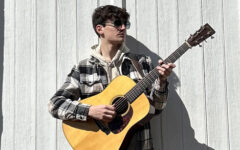 Mike Seeger: August 15, 1933 – August 7, 2009
Mike Seeger: August 15, 1933 – August 7, 2009
Musician, multi-instrumentalist, recording artist, collector, teacher, advocate, record engineer and producer, field-recordist, archivist, folklorist, historian and cultural scholar. Adjectives abound; individually or collectively they cannot begin to describe the influence Mike Seeger has had on traditional American music, bringing it to the attention of people all over the world.
Mike Seeger passed away on August 7, at his home in Lexington, Virginia, from cancer. He had been fighting non-Hodgkins lymphoma for a several years and very recently he was diagnosed as having multiple myeloma leukemia, a very aggressive form of cancer. He was 75.
A distinctive singer, Seeger was born in New York City into a prominent musical family. His father, Charles, was an ethnomusicologist and his mother, Ruth Crawford Seeger, was a music scholar, teacher and classical composer. His older half-brother Pete and sister Peggy are renowned musicians and social activists.
He was also influenced by the African-American singer/guitarist Elizabeth Cotton, who lived in the Seeger home for five years, Woody Guthrie, Jean Ritchie and Charlie Poole, among others
Seeger began playing the autoharp at the age of 12. Soon, he also learned playing the banjo, guitar, fiddle, dulcimer, mouth harp, mandolin and Dobro ®. He quickly came to love traditional music and began playing in earnest in his late teens.
At about the age of 20, Seeger began collecting songs by traditional musicians on a tape recorder. He sought out, learned from and recorded traditional musicians, starting in the Washington, D.C., area where he was raised, and ultimately traveling all over the south to find artists long forgotten or undiscovered. He recorded hundreds of musicians in their homes and at local performing venues, capturing The Stanley Brothers, Mac Wiseman, Bill Monroe and Flatt & Scruggs in their prime. He also encountered such old-time musicians as Kilby Snow, Sam and Kirk McGee, Dock Boggs, Tom Ashley and Cousin Emmy and did much to promote their music. Seeger also documented traditional southern dancing styles.
In 1958, he co-founded the New Lost City Ramblers with John Cohen and Tom Paley, a string band that captured the essence of old music and spent decades performing traditional music in the traditional way. The trio was a crucial force in the revival of interest in traditional southern music, thus preserving it for many generations.
The New Lost City Ramblers recorded about 25 albums, leaving a wonderful, rich legacy.
Alongside his work with the Ramblers, Seeger maintained a busy solo performing career. He recorded dozens of albums presenting old standards and little-known songs such as Rolling and Tumbling Blues.
In 1954 he met and befriended Hazel Dickens shortly after her move to the Baltimore, Maryland, area and subsequently they worked together in the Strange Creek Singers, with Tracy Schwarz, once of the New Lost City Ramblers, former Blue Grass Boy Lamar Grier and Alice Gerrard. The quintet, playing a mixture of urban bluegrass and rustic mountain music, recorded just a single album, released in 1972, that has since become a classic of its type. It is doubtful that we would have heard of Hazel Dickens if it wasn’t for Mike Seeger.
He recorded and produced American Banjo, Scruggs Style in 1957, cited by Neil Rosenberg as the first bluegrass long-playing record ever released, and Seeger was the first person to use, in print, the term “bluegrass.”
He became involved in the Newport Folk Festival and, in 1970, became the director of the Smithsonian Folklife Company.
Also he was the main impetus in the creation The Rockbridge Mountain Music and Dance Festival, a music festival by and for musicians in the Shenandoah Valley of Virginia, in Rockbridge County in 1986.
During his career he produced dozens of albums solo, with the New Lost City Ramblers and with a broad array of other musicians, released variously by Folkways, Vanguard, Arhoolie, Smithsonian Folkways, Mercury, Rounder and Acoustic Disc.
In addition Seeger produced video documentaries and teaching videos on numerous instruments and styles.
In 2007, he played autoharp on the track Your Long Journey on the Grammy Award winning album Raising Sand by Robert Plant and Alison Krauss.
Nominated for six Grammy awards, Seeger won a Guggenheim Fellowship in 1984, received the Rex Foundation’s Ralph Gleason Award in 1995 and an Award of Merit from the International Bluegrass Music Association (IBMA) in the same year.
He was the recipient of four grants from the NEA, including the 2009 Bess Lomax Hawes NEA National Heritage Fellowship, an award that was presented to his widow at a ceremony on 22 August.
Seeger inspired respect for roots music, taking the sounds of the rural hills and hollows of the south to places such as The White House and Carnegie Hall. That inspiration gave impetus to many young acoustic acts in the 1960s, including Bob Dylan, who has written at length about Seeger in his autobiography, and Loudon Wainwright III.
Mike Seeger’s influence on American traditional music is impossible to determine accurately. Many modern old-time and bluegrass musicians were first exposed to the sounds through the music of Mike Seeger and the New Lost City Ramblers.
Joe Wilson is the Director of the Blue Ridge Music Center, which is part of the National Council for the Traditional Arts. He is the author of A Guide to the Crooked Road; no doubt Mike Seeger traveled this way in his search for traditional musicians.
“I met Mike in DC some 40 years ago. He had grown up admiring the Carters, Tom Ashley, Doc Boggs, and other mountain folk of their ilk. I knew those folks from having been reared near them, and hearing them. So we had things to talk about.
Mike reached out to traditional musicians in a wonderfully good-hearted way. Elizabeth Cotton was the Seeger family housekeeper, and as children Mike and Peggy would do the housekeeping if Libba would play the guitar. So they washed the dishes and she taught them her song, Freight Train. She came with Mike to a festival I helped organize in El Paso in the early 80s, and Mike and Libba’s gentle affection for each other warmed thousands.
Mike played the autoharp with tremendous skill, but he wanted everyone to hear Kilby Snow of Fries, Virginia, the greatest autoharp player of all, and took him on the road. So like his father and mother and his brother Pete, Mike was first a teacher and great human being, one that reached across lines of race, class, and culture and took his stand with finest contributions of the common folk. I’m grateful to have felt the warmth of his smile and to have spent time with Mike.”
Bill Clifton helped Seeger spread ‚Äòthe word’ about traditional American music to foreign lands, as he recalls for us now ‚Ķ..
“Mike’s musical abilities extended to anything with strings as well as to a wide variety of folk instruments indigenous to cultures throughout the world. Not only could he play those instruments extremely well, but he could emulate the style of any performer that he considered important to the understanding of traditional music.
The music of Appalachia and the American rural south found little acceptance outside the region until after World War II, and Mike was one of the earliest pioneers to seek audiences elsewhere. He accepted my invitation to join me on a fortnight’s tour in Britain in 1964 largely because he wanted to reacquaint himself with his sister, Peggy, and brother-in-law, Ewan McColl ‚Ķ. and to experience audiences outside of America.
It was his first time to travel overseas, and it created an appetite for travel that continued throughout the rest of his life. In 1965 he took my old Dennis diesel coach across Britain with John Cohen and Tracy Schwarz, who, together with Mike, comprised The New Lost City Ramblers. Their clever choice of material combined well with early 20th century attire and a vaudevillian style of humorous patter, and they easily won over audiences across England and the British Isles.
The following year found Mike Seeger & the Ramblers at the Royal Albert Hall in London with The Stanley Brothers, Cousin Emmy, and Roscoe Holcombe. The same package went on to tour a half-dozen of more western European countries. Soon, he was taking traditional mountain music to Japan, New Zealand and even remote areas in the Philippines as he continued to push his borders outward from home base.
All the while, he re-doubled his efforts in the US to find and record as many significant musicians/singers as possible …. before it was too late to find them alive. He continued his pursuit relentlessly, and he even had the foresight to start training younger folks to continue his mission in life when he was no longer able to do so.
Mike produced the earliest bluegrass LPs for the Folkways label in the mid-1950s .. introducing the banjo-Scruggs-style; Mountain Music – Bluegrass Style; the Stonemans; the Lilly Brothers & Don Stover, etc,. to entirely new audiences. In 1960, he recorded the first of 3 LPs of the Classic Country Gentlemen, choosing material (along with John Duffey and Pete Kuykendall) that would stiur interest in bluegrass with urban and university audiences for the very first time.
Mike Seeger’s dedication to the preservation and advancement of Old-Time and bluegrass music is without precedent and I am personally indebted to him for the many skills, both musical and recording, that he shared with me over the 50-odd years we played music together.”
Mike Seeger and Hazel Dickens were very old friends; they had been since they met in 1954. Their closeness can be seen in Seeger’s express wish that Ms Dickens attend the presentation of the NEA award and banquet that took place last Saturday (8/22).
“I got to visit with Mike near the end. We had a lengthy phone conversation in which we said our goodbyes and then I got a call a few days later saying that he wanted to see me. We had a very, very nice conversation in which we shared some thoughts and memories. He asked me to sing my song Mama’s Hand for him every now and then. I was happy to get to see him one more time.
I did get to see him a few times in July; on July 1 he came up to Washington where he interviewed me for 5 ¬? hours for the Bluegrass Hall Of Fame in Owensboro – (IBMM).
I went to the last New Lost City Ramblers concert and on July 11 I saw him at the Birchmere where he was playing a concert with a lot of musicians – a banjo extravaganza – and we went to San Francisco together for a friend’s memorial.
If it had not been for him I’m not sure that I would have had a career.”
Bill C. Malone is currently working on a book about Mike Seeger. He shared this with me …..
“Mike Seeger can be valued for many contributions. I’ve seldom known anyone who was blessed with so many talents, and who had a greater commitment to keeping traditional music alive.
In my opinion, though, his greatest work came in his efforts to show the dignity and worth of the music of working class people. That’s what Hazel Dickens meant when she said that ‘Mike validated my culture.’ In honoring the original styles of these people (something that no folk musician had done before he and the New Lost City Ramblers came along), he also honored their cultures. This was a profound democratic statement, and every bit as valuable as the work done by his big brother Pete.”
Derek Halsey has also created a nice tribute to Mike, which includes quotes from a 2006 interview, which is published at swampland.com.
Editor’s Note: We would suggest that Mike Seeger’s impact on American traditional music may ultimately be more profound than that of his older brother. His careful research and life-long dedication to “real folk music” may not have been entirely selfless, but it seemed always to be about the music and the people who who made it.
He didn’t so much “discover” artists and styles in a Columbian sense of the word – after all, the people who played traditional American folk music didn’t need to have it brought to their attention, nor did those for whom it was indigenous to their rural culture – but instead brought them to the salons of academia, the connoisseurs of fine art in the large metropolitan centers, and from there to record labels and festivals.
Mike came not as some sort of musical Margaret Mead studying an odd, foreign culture, but as collector of things rare and beautiful which he both admired and respected, and found as worthwhile and valuable as any other music. Nor did he come as a Ralph Peer or A.P. Carter to acquire the music as his own. He came to preserve, document and share something precious and incomparable.
In so doing, he helped make folk, old time, blues and bluegrass music into viable commercial music formats which still live and thrive. He has our enduring gratitude.
Rest in peace. My Almighty God have mercy on your soul.







